Home > Articles > Special Series > Bill Emerson and the Birth of the Country Gentlemen
Bill Emerson and the Birth of the Country Gentlemen

After Buzz Busby’s band, minus Bill Emerson, was in a tragic car crash on the 29th of June, 1957, Busby was in a coma for about a day and a half. When he awoke, Bill Emerson went to visit him in the hospital and Buzz requested that Bill put together a band to cover their regular gig at the Admiral Grill on Columbia Pike in Bailey’s Crossroads, Virginia. Buzz did not want to lose the regular engagement while he and other band members recovered from the crash.
To help him fill in the dates, Bill called his friends John Duffey and Charlie Waller. The first gig they played together was as a trio at the Admiral Grill on July 4th, 1957. John Duffey grew up in Bethesda, Maryland and lived just a mile or two down the road from Bill Emerson. Charlie Waller had moved to the Washington, D. C. area when his family relocated from Shreveport, Louisiana in 1941. Waller had spent time playing with Buzz Busby, both in the D.C. area and on the Louisiana Hayride, and had also played with Earl Taylor and the Stoney Mountain Boys in Baltimore.
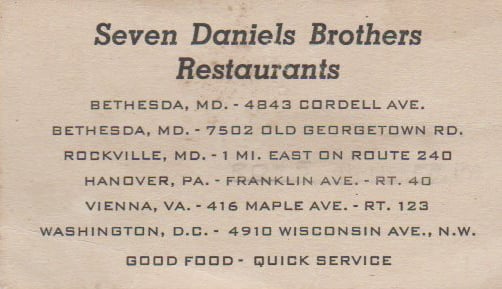
Bill Emerson recalls meeting Charlie Waller at the Seven Daniels Brothers Restaurant in Washington, D.C. The seven Daniels brothers were from North Carolina and, according to Bill, they made “hamburgers to die for.” One of the brothers, Keith, loved bluegrass music and had bluegrass records on the jukebox in the restaurant. Bluegrass fans would go to the restaurant to eat and listen to bluegrass. Some patrons would also bring instruments with them and jam sessions in the restaurant were common.
In Stephen Moore’s book John Duffey’s Bluegrass Life, Duffey is quoted as saying that he had not met Charlie Waller prior to the gig at the Admiral Grill. After Duffey, Waller, and Emerson sang together, they recognized that they had something special and decided to stay together. While they had initially come together to hold the spot for Busby’s band, Buzz was taking longer to heal than anticipated. So, the trio decided to form their own band.
The trio performed together for about a month before adding a bass player, Larry Lahey. Lahey was working at the Washington Star newspaper. A very short time after joining the band Lahey had a conflict between his day job and the late nights playing music in bars. The second bass player to join the group was Tom Morgan. Morgan was in the Air Force at the time. He also built banjos and repaired instruments on the side. When Morgan had to leave the group he was replaced by Jim Cox.
After the band played for a few weeks at the Admiral Grill, they decided that another club, Crossroads, that was about a half a mile down the road from the Admiral Grill, was a better venue and moved the residency to that club. They also started performing at a club in Alexandria, Virginia called the Groveton Lunch. The first non-bar gig that the band played was a benefit concert in Maryland (see the photos that accompany this article).
In addition to playing at Crossroads, the band also earned a regular 15-minute, Monday-through-Friday, radio show on WARL in Arlington, Virginia. They would go to the radio station for about two hours each week and record twenty songs. Their 15-minute program allowed four songs, plus commercials. The radio program was hosted by DJ Mike Kelly. They stayed with the radio program on WARL for about six months.
It was while working at the radio station that John Duffey came up with the band name. Duffey did not want to use the typical “Mountain Boys” or “Valley Boys.” He did not want to be a repeat of something that had already been done. While looking through the record library at WARL, Duffey found a Chet Adkins album that had the name “The Country Gentleman” on it. Duffey said, “That is the name we need to have. We are gentlemen, not boys.”
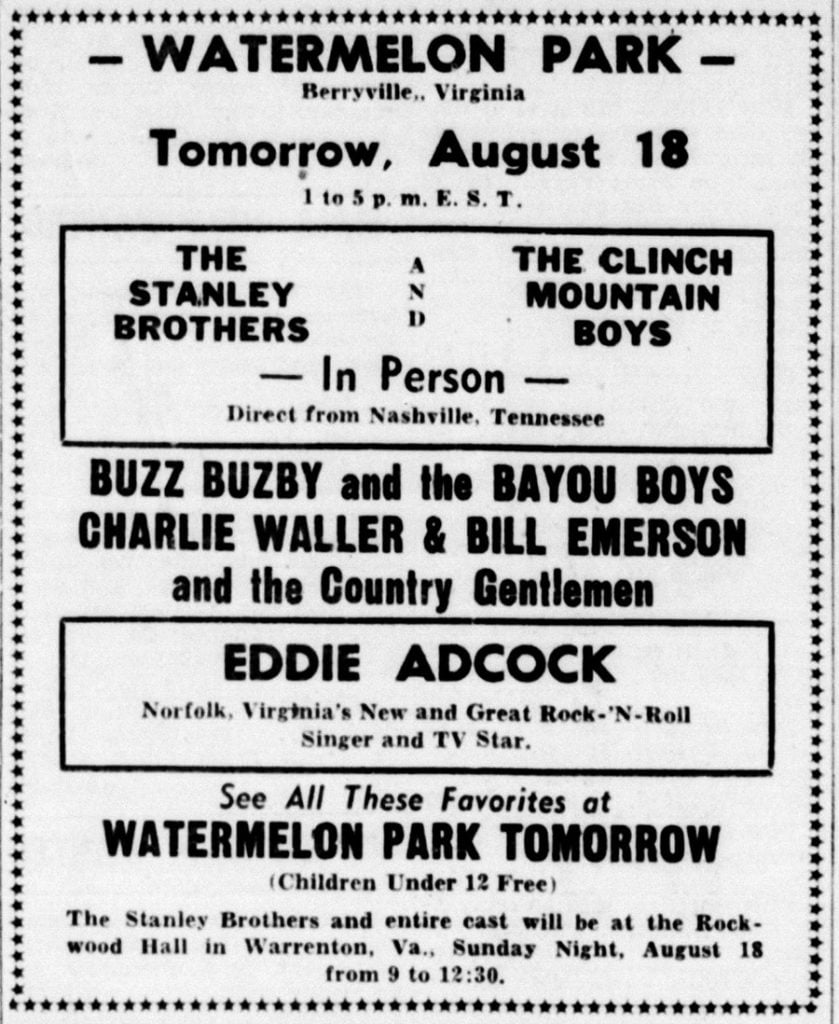
In September of 1957, the Country Gentlemen self-produced their first recordings. They recorded two songs and pressed several hundred copies of the 45 rpm release. The first side was a song called “Going to the Races” that was written by Carter Stanley. The second song was “Heavenward Bound” that was written by John Duffey. Since the band paid for the pressing of the record, they made up their own label name. They called their label Dixie. Duffey came up with the name.
Regarding the Carter Stanley penned tune, Stanley wrote the tune for the Country Gentlemen in a matter of minutes backstage at a bluegrass show at Watermelon Park in Berryville, Virginia on August 18th, 1957 (see the image of an advertisement for this show on this page—image courtesy of Gary Reid). Duffey told Stanley that his band was getting ready to record and asked Stanley if he had a song he could give them. Carter wrote out the lyrics on a piece of paper and gave them to Duffey.
Bill Emerson’s son, Mike, recognized a similarity between “Going to the Races” and the Stanley Brother’s song “Gonna Paint the Town” and asked Bill about it. Bill replied, “Right, there’s lots of similarities in the tunes. The melody on the chorus is the same. One says ‘we’re goin’ to the races,’ the other says ‘we’re goin’ honky tonkin.’ We came by the song when John Duffy asked Carter Stanley if he had anything we could record. Carter wrote out the lyrics on piece of paper and gave us “Going to the Races.”
In the liner notes to Going Back to the Blue Ridge Mountains by the Country Gentlemen (Smithsonian Folkways SFW 40175). Jon Hartley Fox wrote “‘Going to the Races’ was the first song recorded by the Country Gentlemen, Carter Stanley wrote the song for the Gent’s debut single, fashioning it from a couple of older songs, mostly ‘Let Her Go, God Bless Her,’ a mid-1930s hit for J.E. Mainer’s Mountaineers. Liking the result and wanting to cut it himself, Stanley rewrote it as ‘Gonna Paint the Town,’ which the Stanley Brothers recorded for Starday in 1958.”
The flip side of “Going to the Races” was a gospel song written by John Duffey and published by Pete Kuykendall’s Wynwood Music Company. Mike Emerson, a pastor, asked his father if John Duffey was a religious man. Bill replied, “To my knowledge John Duffey was not particularly religious. Gospel music has always been a strong component of the bluegrass music genre. Pioneers like Bill Monroe, Flatt and Scruggs, Reno and Smiley, Mac Wiseman, Jim and Jesse, and Jimmy Martin, all included it in their repertoire. Maybe that’s because country people back then were grounded in the church and grew up learning to sing gospel songs and harmonies. I suppose John felt we needed one too. [Regarding] the Dixie 45, that’s certainly a very rare and desirable record. There was never an actual Dixie record company. It was just a name we made up. I don’t recall exactly how many we had pressed or the cost, but I’m going to say it was probably 300 or less. It was not expensive.”
The musicians involved in the session were John Duffey (mandolin), Charlie Waller (guitar), Bill Emerson (banjo), John Hall (fiddle) and Tom Morgan (bass). For the vocals on “Going to the Races” John Duffey sang lead tenor, Bill Emerson sang baritone, and Tom Morgan sang bass. For “Heavenward Bound” Emerson sang baritone, Charlie Waller sand lead, Duffey sang tenor, and Morgan sang bass.
John Hall was originally from Front Royal, Virginia and had been involved in the Washington, D.C. area bluegrass scene since the mid-1950s. He had worked with Buzz Busby when Charlie Waller was in the band. Later, Hall played with the Stanley Brothers.
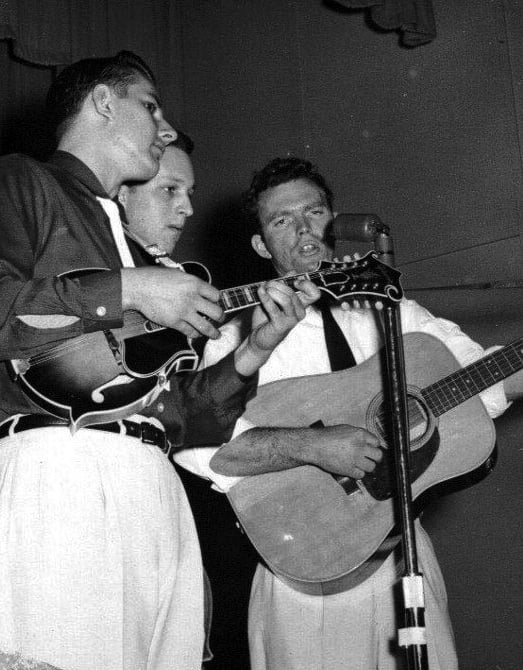
The Country Gentlemen’s first recording for a nationally distributed label was for Starday Records of Nashville, Tennessee. The association with Starday was formed through the musician’s relationship with Ben Adelman, who owned a recording studio. Adelman knew Starday owner Don Pierce and acted as a talent scout for the label. On many of the Country Gentlemen’s early recordings writer’s credit was given to Cindy Davis, which was a pseudonym for Ben Adelman. The Country Gentleman never recorded a full album for Starday. All of their recordings were 45 rpm releases.
In an interview published in the March 1992 issue of Bluegrass Unlimited Magazine, Emerson explained how the recordings came about: “I was working for Ben Adelman, a record distributor who had a small studio in Takoma Park, Maryland, and recorded local artists. He stocked record racks in grocery stores and other locations with 99-cent albums. It was our job to sell those to stores and to service them periodically. Roy Self, who was playing bass for Bill Harrell, myself, and Phil Flowers, a blues singer, all did that job. In the meantime, people like Bill Harrell, Buzz Busby and later Red Allen were recording for Adelman because he had a Starday Records connection. He’s the guy that got the Country Gentlemen the Starday Records deal.”
The Country Gentlemen’s first Starday sessions were in December, 1957. By this time fiddler Carl Nelson was a part-time member of the group and Roy Self was playing the bass on some of their sessions. Nelson was from the Roanoke, Virginia area and had been in a band with his brothers. Nelson met the Country Gentlemen through radio personality Don Owens. He moved to the Washington, D.C. area when he was nineteen and did work hanging drywall. Nelson would stay with the Country Gentlemen until he went into the Army in 1958. Roy Self was not an official member of the Country Gentemen—he actually worked with Bill Harrell—but he played the bass on several sessions with the band.
The band produced four tunes during two sessions. The first two tunes were “Backwoods Blues,” which was a re-working of the jazz tune “Bye Bye Blues,” and “Yesterday’s Love,” a tune written by John Duffey. The musicians on these sessions included Bill Emerson (banjo), Charlie Waller (guitar), John Duffey (mandolin), Carl Nelson (fiddle), and Roy Self (bass). On “Yesterday’s Love” Waller sang lead, Duffey tenor, Emerson baritone, and Roy Self sang bass.
Regarding these two sessions, liner notes that appeared on a compilation of the Country Gentleman Starday releases states: “Curiously, John departed from the standard mode of mandolin playing with a flatpick; on the three tunes from these sessions on which he played mandolin, he used finger picks and played in a rolling manner as a banjo player would do. Several of Reno and Smiley’s first King recordings from 1952 highlighted Don Reno using this same effect on the mandolin. Duffey was proficient on the dobro as well and the song ‘Yesterday’s Love’ features his first use of the instrument on recordings with the Country Gentlemen.”
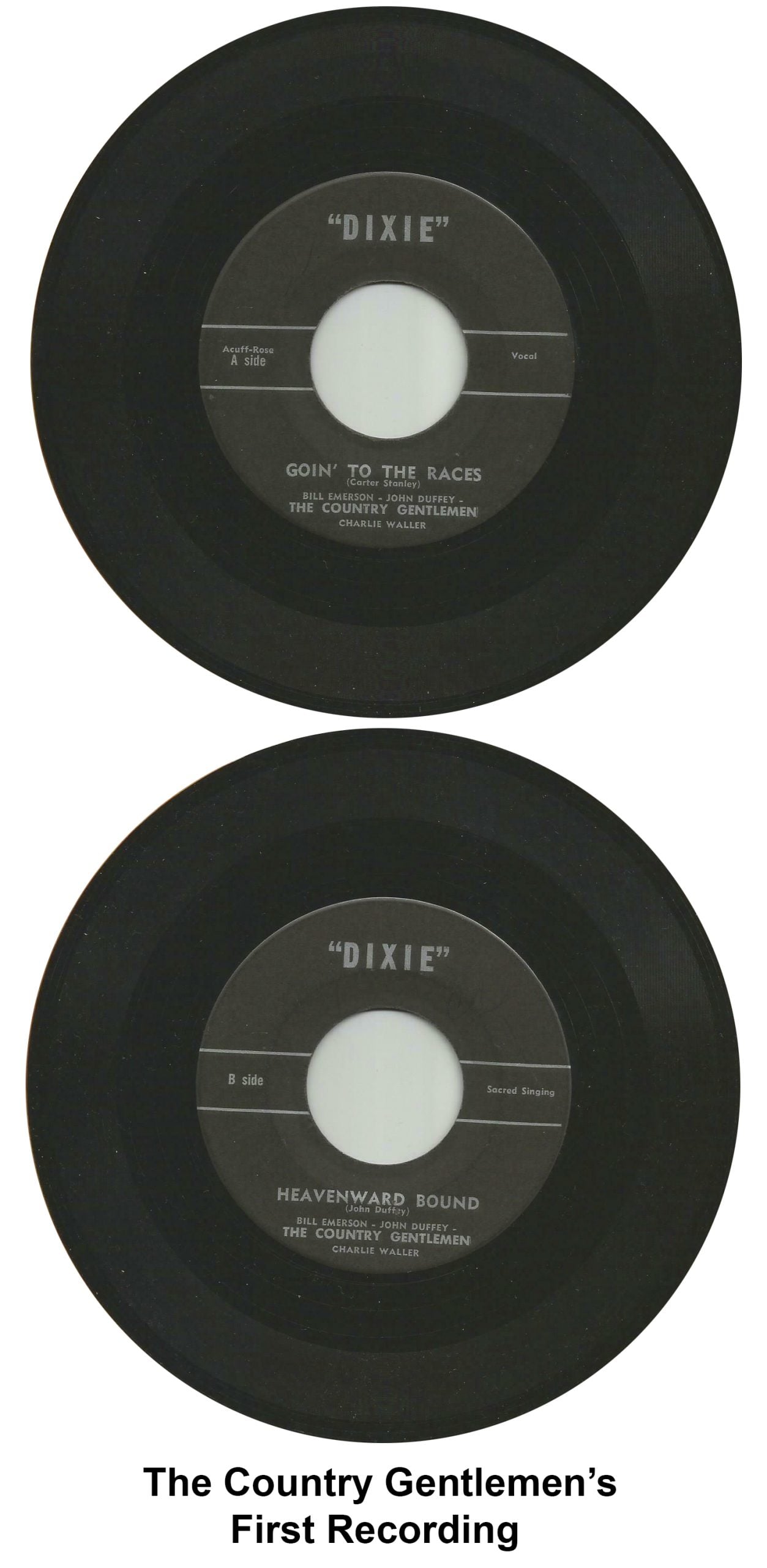
The two tunes recorded for the second session where “Dixie Lookaway” and another Duffey tune “It’s the Blues.” “Dixie Lookaway” was an instrumental that was Emerson’s re-working of the song “Dixie.” “It’s the Blues” was a vocal song that included Waller singing lead, Duffey singing tenor, and Emerson singing baritone. The same musicians who played on the first session returned, with the exception of Roy Self who had already booked a gig with Bill Harrell. To replace Self, the Country Gentlemen brought in Pete Kuykendall (aka Pete Roberts) to play bass.
Of the four tracks recording during these two sessions, two were instrumental and two were vocal. They were 45 rpm releases with a vocal tune on one side and an instrumental tune on the other side. The liner notes of a Country Gentlemen Starday compilation explains that in those days releasing a 45 with a vocal on the A side and an instrumental on the B side was a way to encourage radio DJs to focus on the vocal number. The B side instrumental was viewed as “filler.”
The second round of Starday sessions produced four new tracks and occurred in May of 1958. These sessions produced the songs “Orange Blossom Fiddle,” (which was actually “Orange Blossom Special”), “High Lonesome,” “Banjo Hop” (also released as “Mountaineer’s Fling”), and “The Church Back Home.” In addition to the Duffey, Waller, Emerson trio, these sessions also included Pete Kuykendall and Carl Nelson.
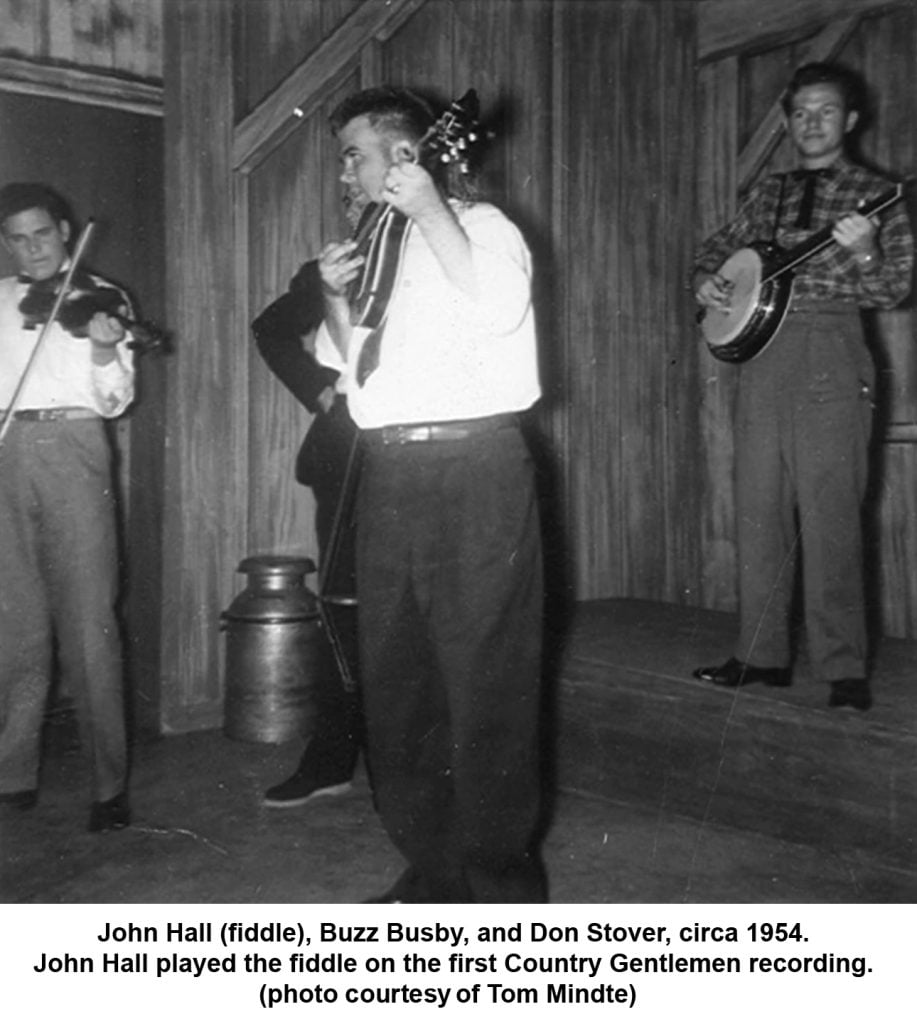
Pete Kuykendall played second mandolin on “High Lonesome,” a tune penned by John Duffey. On this tune Duffey overdubbed the bass. On “The Church Back Home” Kuykendall played lead guitar and sang tenor over Duffey’s lead voice while Charlie Waller sang the bass part under Emerson’s baritone. Carl Neslon played lead fiddle on “Orange Blossom Fiddle” and then overdubbed a second fiddle part. Nelson recorded this song two days before going into the Army. Duffy overdubbed the bass as the band did not have a regular bass player at this time.
After Carl Nelson joined the Army, the Country Gentleman recorded one last tune with Bill Emerson. This tune was “Hey, Little Girl,” a song written by Duffey. Since Nelson was gone, and John Hall just happened to be in the studio that day, Hall played the fiddle and Roy Self played bass. Duffey sang both lead and tenor vocals on this tune with Emerson adding the baritone and Waller singing lead on the chorus.
These were the last sessions that Bill Emerson would record with Country Gentlemen until he rejoined the band just over a decade later. Emerson left the band in 1958 and went to work with Bill Harrell and other Washington, D.C. area bands between 1958 and 1962. We will explore these four years of Bill Emerson’s career in the next article in this series.
Share this article
1 Comment
Leave a Comment Cancel Reply
This site uses Akismet to reduce spam. Learn how your comment data is processed.
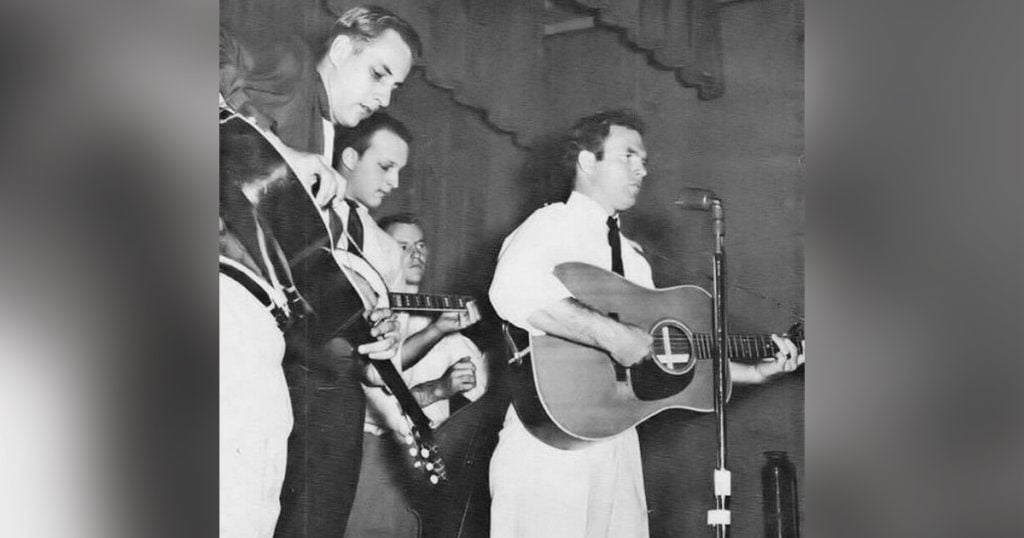
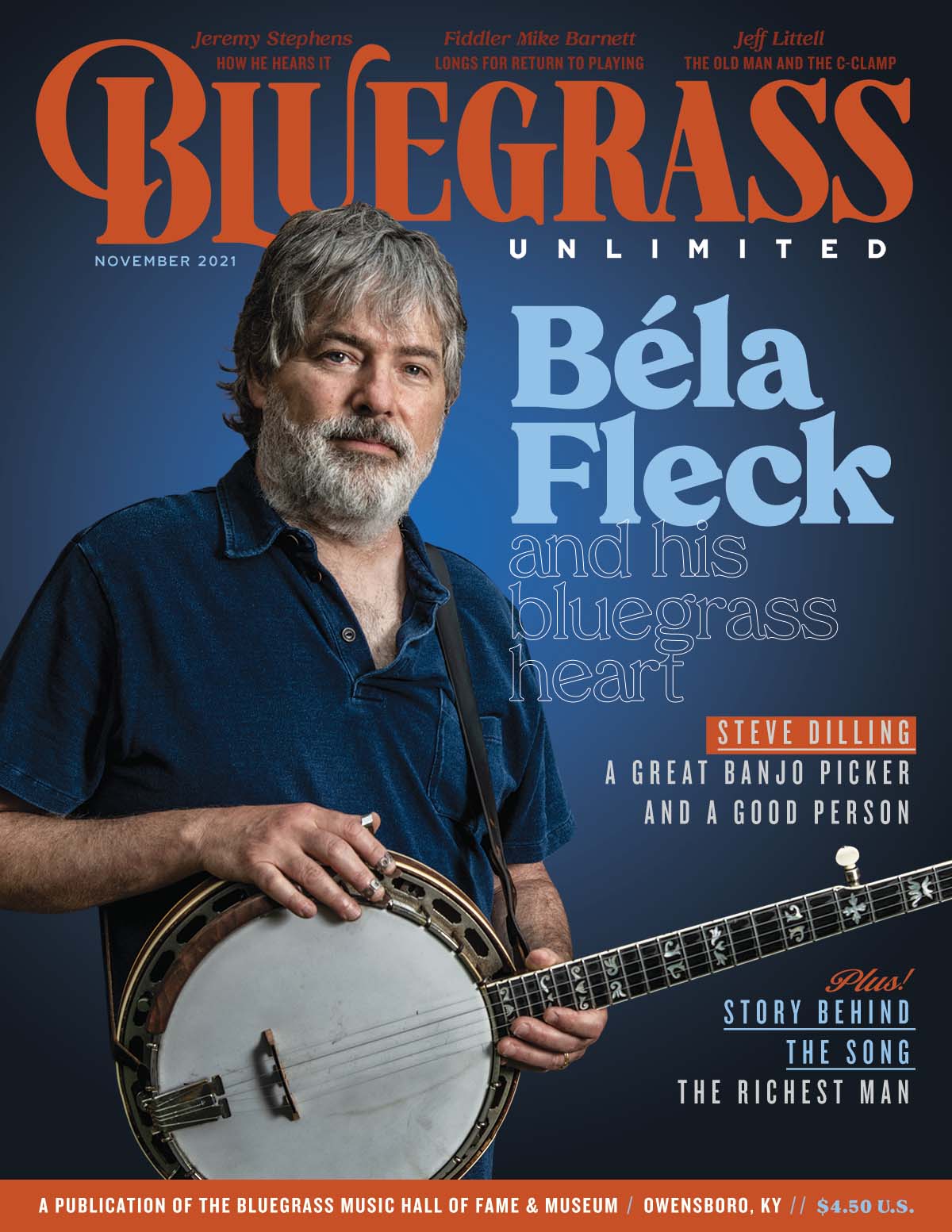
A superb, in-depth account of Emerson’s early years. I worked with him for 12 years -(76-88) building & forming the U.S. Navy Band’s Country Current. Emerson’s sense of timing, harmony singing & musicianship were above reproach. He was the foundation that the official U.S. Navy’s Country/Bluegrass was built. The Navy made a wise decision, going to smaller groups (for Navy Recruiting engagements) & having the foresight to see the popularity of Bluegrass music. This article is very well written with specific names, dates, times, etc. Mr. Dan Miller is to be complimented on his thorough research, editing & professional writings. Congratulations! & Well Done. – Jerry Gilmore, MUCM USN (Ret.)